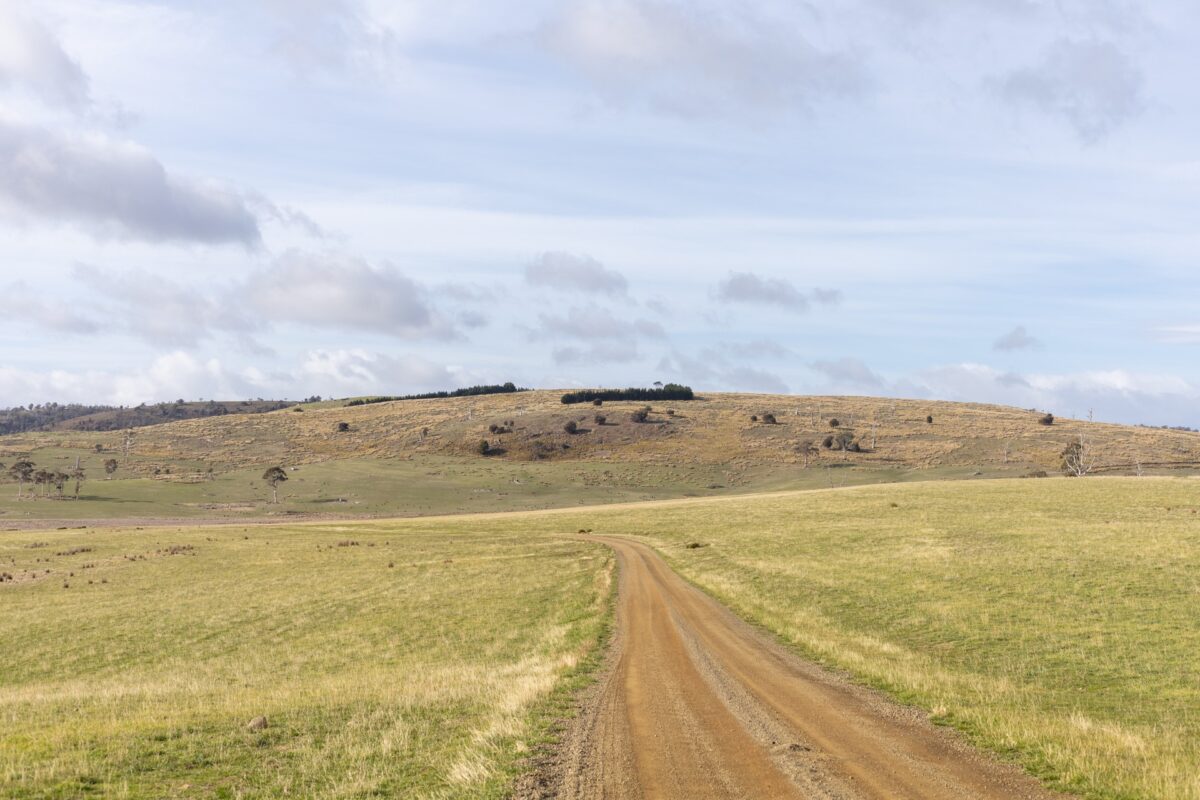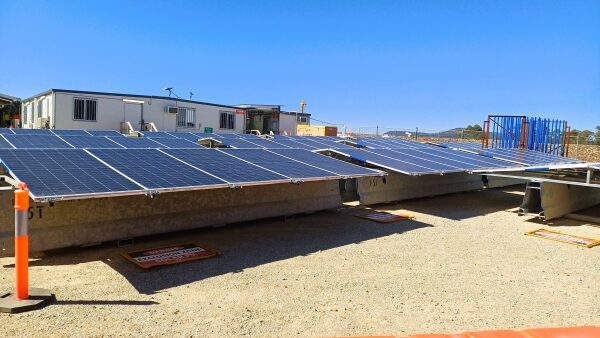The Australian arm of Malaysian engineering group Gamuda has signed an agreement with Tasmanian landowners to co-develop a portfolio of solar, wind and battery energy storage projects. The portfolio represents a combined capacity of 600 MW of solar and wind energy generation and up to 600 MW of battery storage.
Included in the portfolio is the Weasel solar project being developed on a 435-hectare site about nine kilometres north of Bothwell in Tasmania’s Central Highlands. The project is to comprise a 250 MW solar farm alongside a 144 MW / 576 MWh battery energy storage system.
The portfolio also includes the Cellars Hill project that is being developed across the road from the solar farm. It is to include a 350 MW wind farm and a 600 MW / 2,400 MWh battery.
The projects have been led by local landowners, the Downie and Bowden families, working in partnership with Andrew Clark from Melbourne-based advisory Alternate Path.
Gamuda said it will take an equity stake in the portfolio to secure development rights for the current and future projects and deliver them under sole-source engineering, procurement, and construction (EPC) contracts.
Gamuda Chief Strategy and Growth Officer Jarred Hardman said the portfolio aligns with the company’s strategy to become a leading end-to-end developer, builder, and owner of energy assets to accelerate Australia’s clean energy future.
“This deal represents our first Australian investment and aligns with our goal to invest and construct high-quality energy projects to diversify and grow our Australian business,” he said.
“This builds upon our ongoing success in the Australian infrastructure market where we are delivering a $4.5 billion (USD 2.96 billion) pipeline and is supported by our energy experience across a range of projects internationally.”
Peter Downie said the deal was a win-win-win for landowners, the community and Gamuda.
“We have been highly selective in finding the right partner to work with us to develop this portfolio that brings both a financial and technical contribution and is wholly committed to the strong social licence and landowner-led principles of these projects,” he said.
“We have been in discussion with Gamuda for many months and have seen their genuine partnership approach and commitment to our community values. We’re excited to move forward together to deliver these projects for the benefit of Tasmanians.”
Construction of Weasel Solar Farm is, subject to further planning and development processes and approvals, expected to commence in 2027 with work on the Cellars Hill project to begin the following year.
Gamuda said the agreement, that is subject to Foreign Investment Review Board approval, will set the company up with a pipeline of energy construction work through to 2029 and help it achieve its target to build a 1 to 2 GW portfolio of solar and wind projects in Australia before the end of the decade.
The company said its strategy has been to invest up to 40% equity in “shovel ready” solar and wind projects while also selectively bidding for EPC contracts in solar, wind, pumped hydro and transmission projects.
The company is currently engaged under early contractor involvement (ECI) agreements for Alinta Energy’s Oven Mountain pumped hydro project in New South Wales and Copenhagen Infrastructure Partner’s Capricornia Energy Hub in Queensland.
This content is protected by copyright and may not be reused. If you want to cooperate with us and would like to reuse some of our content, please contact: editors@pv-magazine.com.









1 comment
By submitting this form you agree to pv magazine using your data for the purposes of publishing your comment.
Your personal data will only be disclosed or otherwise transmitted to third parties for the purposes of spam filtering or if this is necessary for technical maintenance of the website. Any other transfer to third parties will not take place unless this is justified on the basis of applicable data protection regulations or if pv magazine is legally obliged to do so.
You may revoke this consent at any time with effect for the future, in which case your personal data will be deleted immediately. Otherwise, your data will be deleted if pv magazine has processed your request or the purpose of data storage is fulfilled.
Further information on data privacy can be found in our Data Protection Policy.